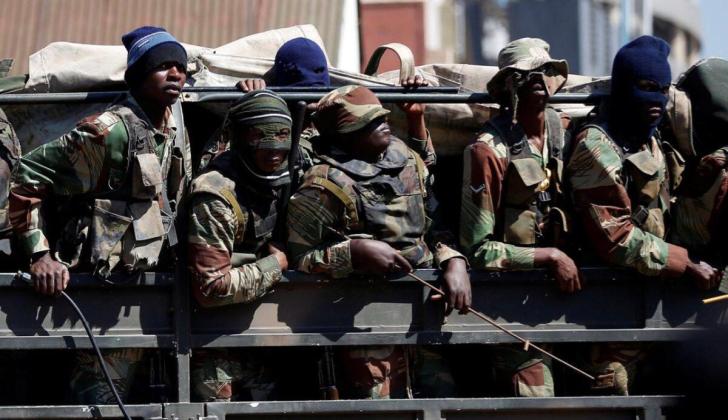News / National
Zimbabwe military a stumbling block to Mnangagwa manoeuvre
11 Sep 2024 at 10:56hrs |
0 Views

As President Emmerson Mnangagwa seeks to extend his presidency beyond his constitutionally mandated second term, he faces significant opposition from Zimbabwe's military, a key political power broker in the country. Despite publicly denying any intention to remain in office beyond 2028 and presenting himself as a constitutionalist, Mnangagwa is reportedly exploring ways to extend his tenure.
Mnangagwa's party, Zanu-PF, has been pushing for constitutional amendments to allow him to stay in office until 2030. Recent statements from Zanu-PF Harare provincial chairperson Godwills Masimirembwa and the party's women's league support this extension, highlighting a concerted push for Mnangagwa's prolonged leadership.
However, military sources have indicated that the army will firmly block any attempts to alter the constitution to extend Mnangagwa's presidency. According to a military insider, Mnangagwa is expected to serve only his constitutional second term and retire in 2028. The source added that Mnangagwa's public commitment to retiring in 2028 contrasts with his private efforts to encourage supporters to seek constitutional changes. The military views any such efforts unfavorably, with only a few individuals supporting Mnangagwa's bid for extension due to personal interests.
The Zimbabwe Democracy Institute's recent report underscores the military's decisive role in Zimbabwean politics, particularly in succession matters. The report suggests that the military's involvement in Zanu-PF's leadership selection process will be crucial, with a military-backed candidate or a military figure likely to succeed Mnangagwa. This scenario is seen as inevitable given the military's historical influence over political authority in Zimbabwe.
The report also notes that the military's role in Zimbabwean politics is profound and enduring, with civilian control often overshadowed by military dominance. The future of Zanu-PF and Zimbabwe's political landscape will likely continue to be shaped by the military's involvement, reflecting a complex relationship between civilian authority and military power.
In light of these dynamics, the path to democratic governance in Zimbabwe requires addressing these entrenched civil-military relations and ensuring adherence to constitutional principles, amidst ongoing factionalism and political maneuvering.
Mnangagwa's party, Zanu-PF, has been pushing for constitutional amendments to allow him to stay in office until 2030. Recent statements from Zanu-PF Harare provincial chairperson Godwills Masimirembwa and the party's women's league support this extension, highlighting a concerted push for Mnangagwa's prolonged leadership.
However, military sources have indicated that the army will firmly block any attempts to alter the constitution to extend Mnangagwa's presidency. According to a military insider, Mnangagwa is expected to serve only his constitutional second term and retire in 2028. The source added that Mnangagwa's public commitment to retiring in 2028 contrasts with his private efforts to encourage supporters to seek constitutional changes. The military views any such efforts unfavorably, with only a few individuals supporting Mnangagwa's bid for extension due to personal interests.
The Zimbabwe Democracy Institute's recent report underscores the military's decisive role in Zimbabwean politics, particularly in succession matters. The report suggests that the military's involvement in Zanu-PF's leadership selection process will be crucial, with a military-backed candidate or a military figure likely to succeed Mnangagwa. This scenario is seen as inevitable given the military's historical influence over political authority in Zimbabwe.
The report also notes that the military's role in Zimbabwean politics is profound and enduring, with civilian control often overshadowed by military dominance. The future of Zanu-PF and Zimbabwe's political landscape will likely continue to be shaped by the military's involvement, reflecting a complex relationship between civilian authority and military power.
In light of these dynamics, the path to democratic governance in Zimbabwe requires addressing these entrenched civil-military relations and ensuring adherence to constitutional principles, amidst ongoing factionalism and political maneuvering.
Source - newshawks
Join the discussion
Loading comments…






























